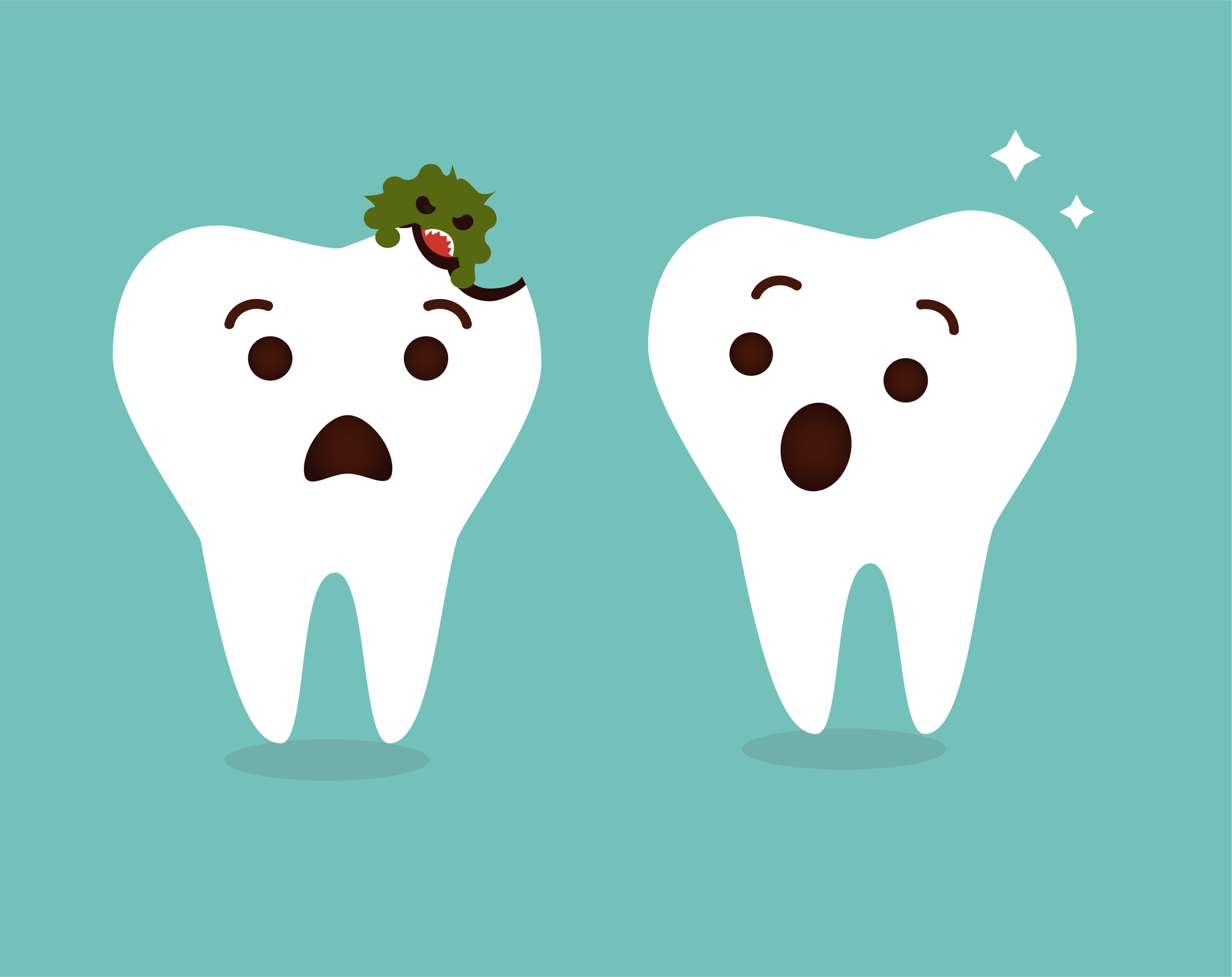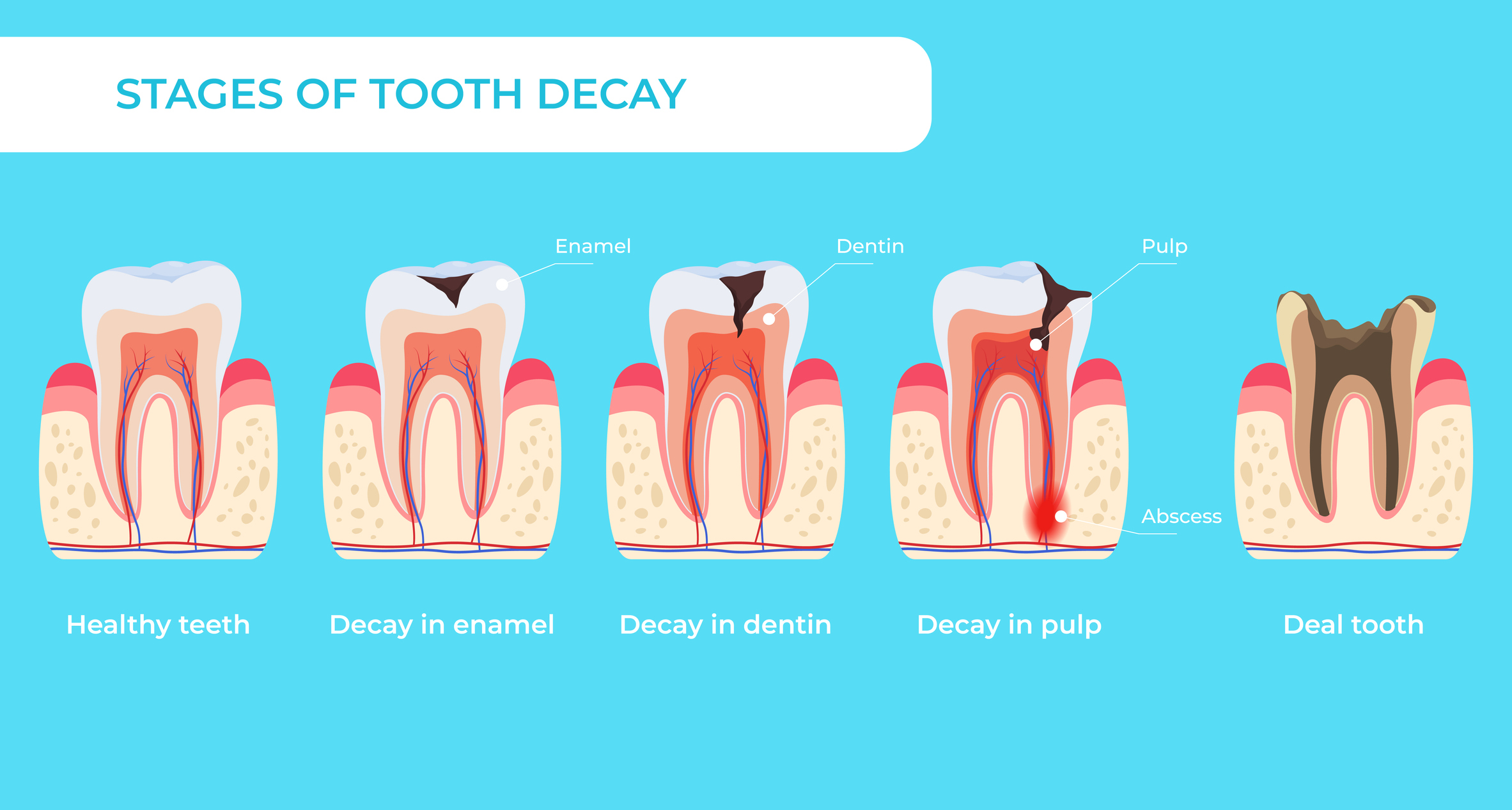
As a child or as an adult, you may have been told you have a cavity during a dentist appointment. While it’s something none of us want to hear, cavities — also known as tooth decay — are relatively common in people of all ages. In fact, research tells us that more than 80% of Americans will have had at least one cavity by age 34.
At SMILE! Advanced Dental Center in Summerville, SC, we treat cavities regularly in our general dentistry practice — but it is certainly something we’d like to see happen less often, especially because tooth decay is often preventable!
Causes of Tooth Decay
Tooth decay begins when bacteria in your mouth make acids that start eroding the tooth’s enamel surface. This can lead to a small hole in a tooth, which is called a cavity. If tooth decay is not treated, it can cause pain, infection, and even tooth loss.
Children often get cavities because of improper and infrequent brushing as well as consuming sugary foods and drinks. However, adults can get cavities for the very same reasons. Adults are also more likely to have receding gums, which exposes more of the tooth to plaque.
However, there are other risk factors that can create a higher susceptibility to tooth decay, including family history, conditions and medications that cause dry mouth, and prior radiation therapy.
Symptoms of tooth decay
It’s important to know that tooth decay on the outer enamel surface doesn’t usually cause pain or symptoms. That’s one of the reasons it is so important to be diligent about your six-month dental cleanings and exams, to catch any signs of decay early. When detected early on, it’s easier to treat and reverse and less likely to cause you pain.
You’re more likely to experience negative symptoms as decay progresses beyond the enamel into the dentin and pulp of the tooth.
Cavities can cause bad breath or a bad taste in your mouth, bleeding gums or other signs of gum disease, facial swelling, toothache and mouth pain, and sensitivity to hot or cold food and drink. At their worst, you may be in enough pain to require emergency dental care.

Preventing Tooth Decay
First and foremost, at SMILE! Advanced Dental Center, we recommend you maintain a good oral hygiene routine that includes brushing your teeth at least twice a day with a fluoride toothpaste — and flossing regularly, too.
Fluoride is a mineral that can help prevent tooth decay and stop it from progressing. It’s also commonly used as a treatment in our pediatric dentistry practice, as well.
Other steps you can take to keep your teeth decay-free include limiting the consumption of sugary drinks and foods and not using tobacco products.
Last but not least, visiting a dentist for professional cleanings and regular check-ups — with X-rays recommended annually — is essential.
How we Treat Tooth Decay at SMILE! Advanced Dental Center
During dental cleanings and exams at SMILE! Advanced Dental Center, we carefully evaluate if tooth decay is present. If it’s still in its early stages, before a cavity forms, we can apply fluoride to reverse the decay and strengthen the enamel — or apply a sealant.
If the decay is more advanced, we will remove the decayed areas from the cavity and then restore the tooth with a filling.
Traditionally, dental fillings have been made of silver amalgam. However, we only use composite (or tooth-colored) filling material. Our team uses this option to provide our patients with a more natural-looking result and to promote better long-term oral health.
Remember: It’s best to catch any minor tooth decay as early as possible to treat the problem before it gets worse!

0 Comments